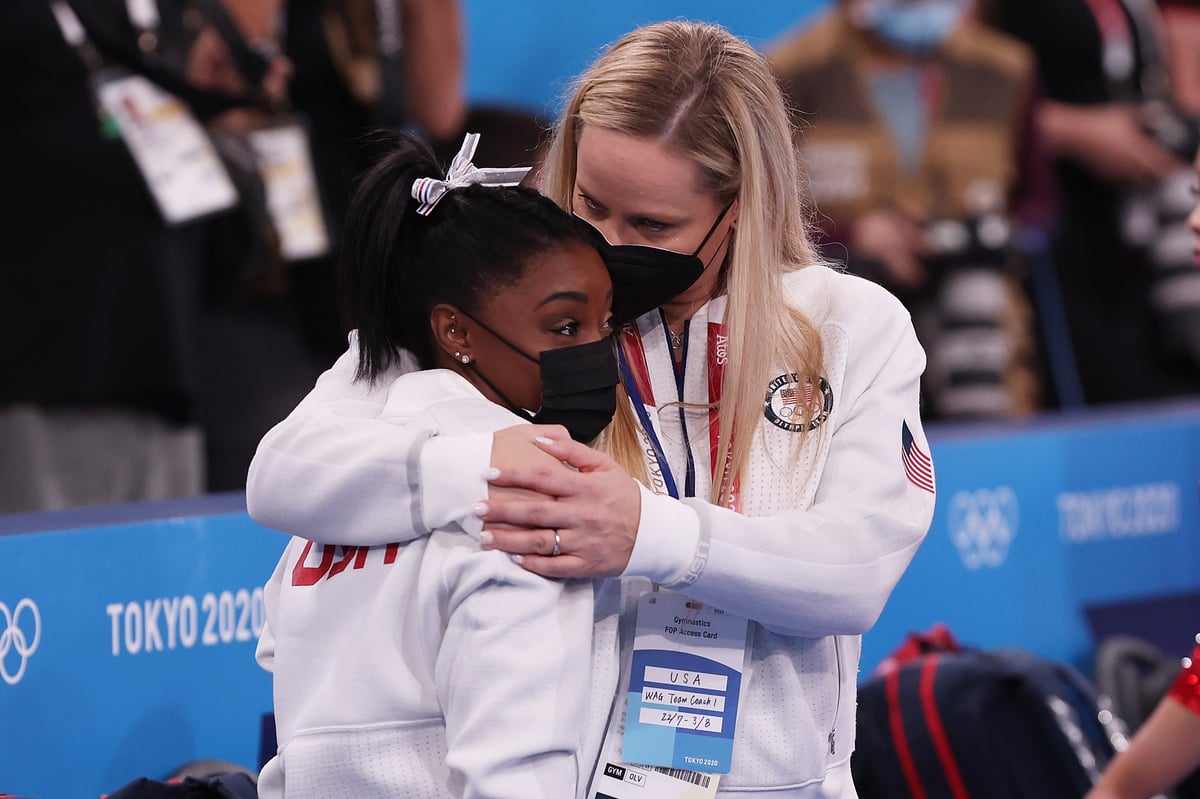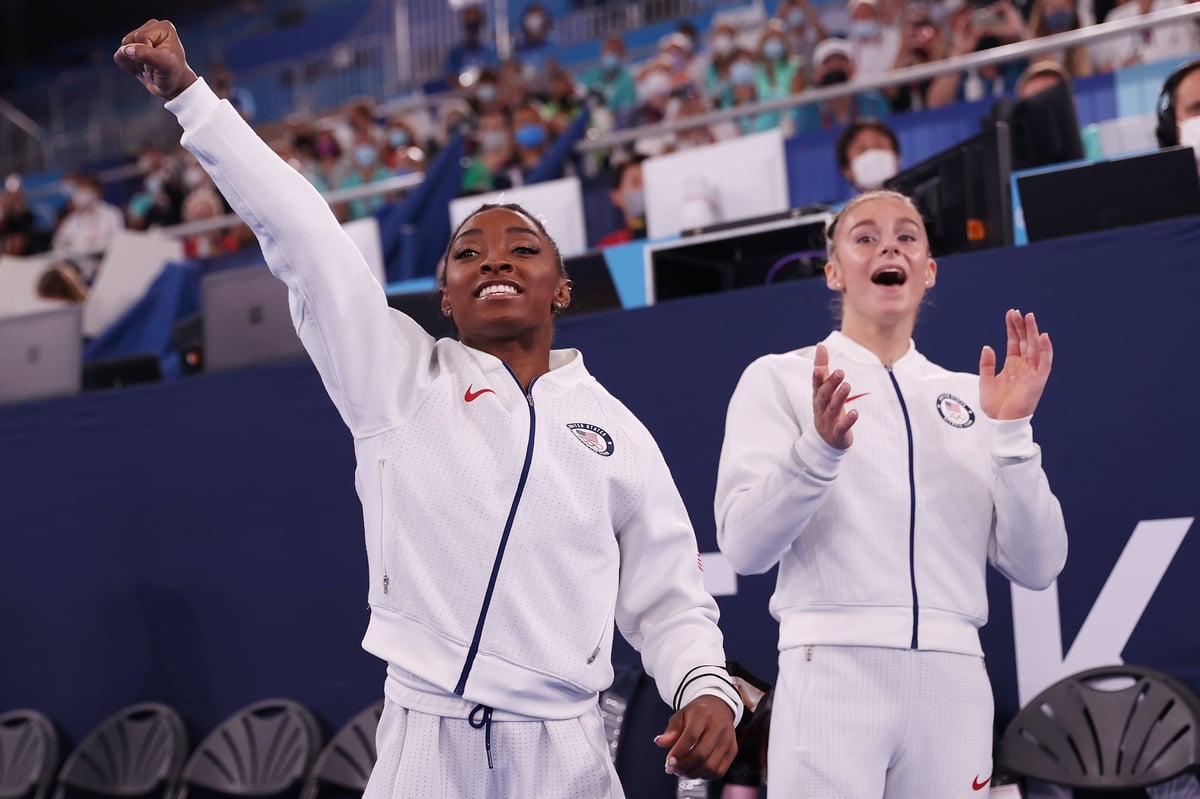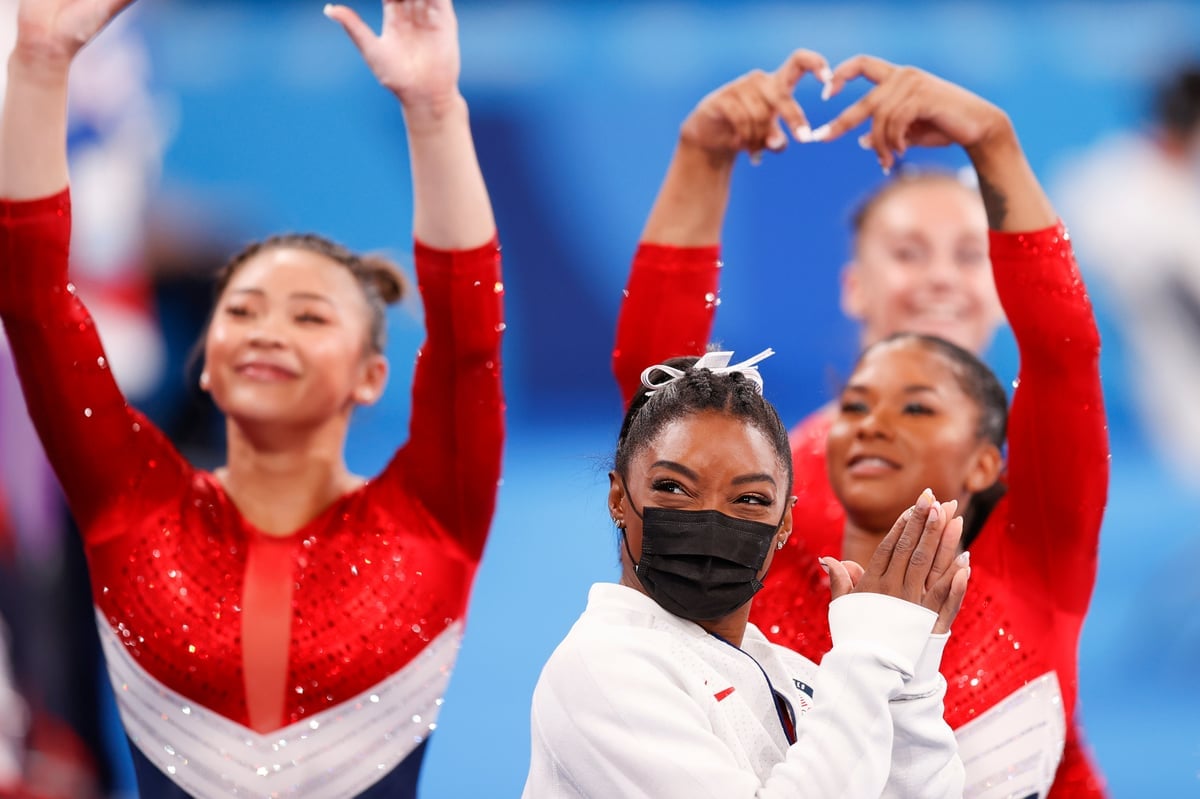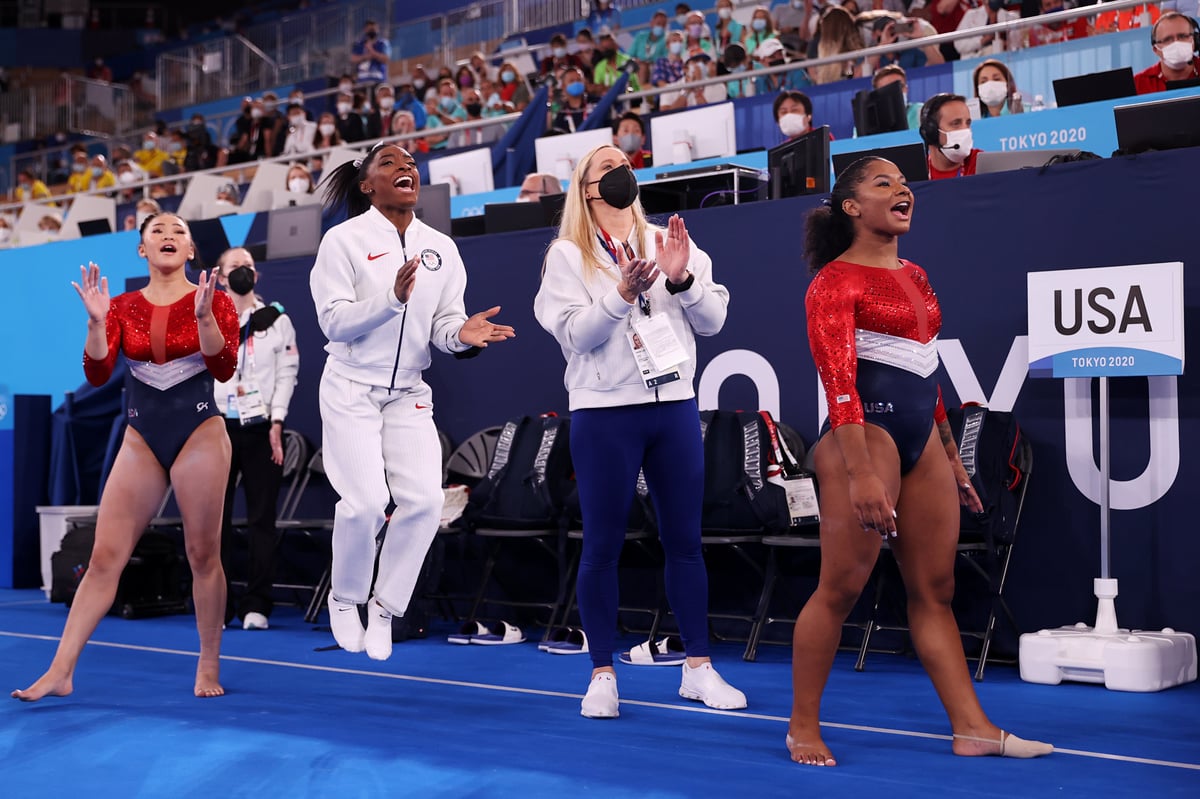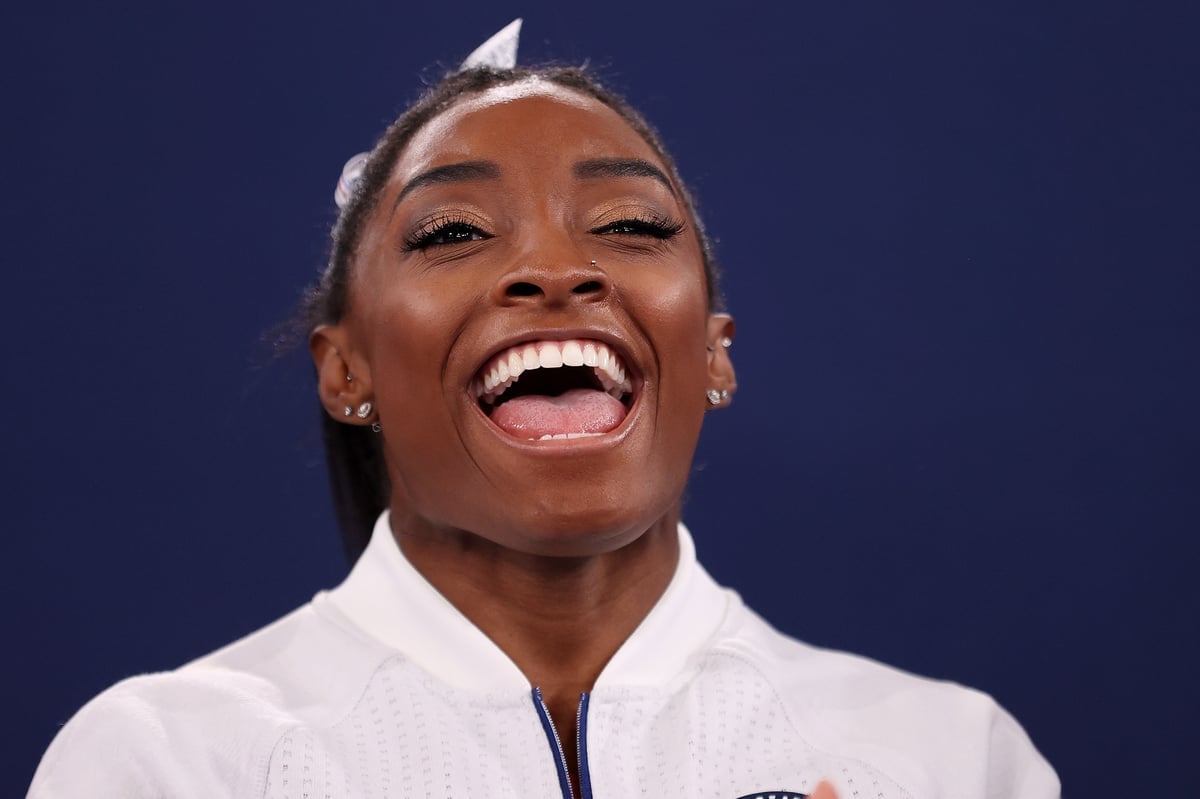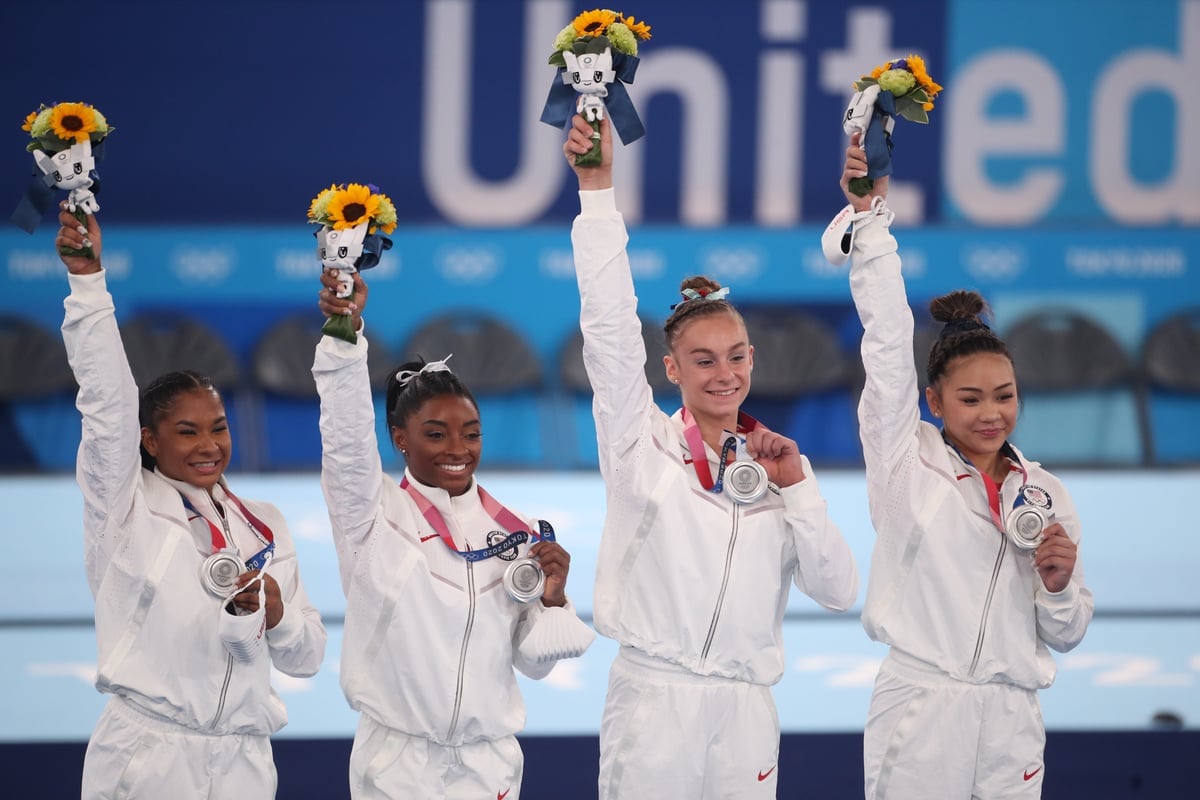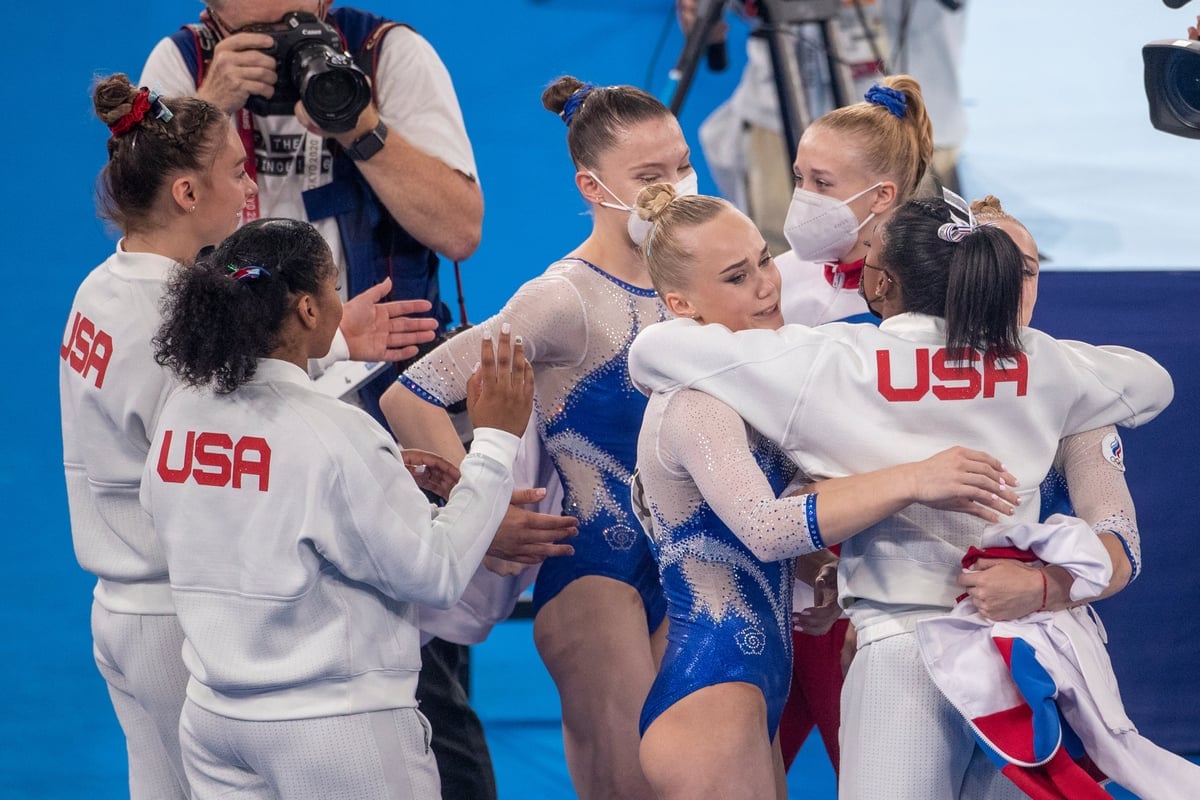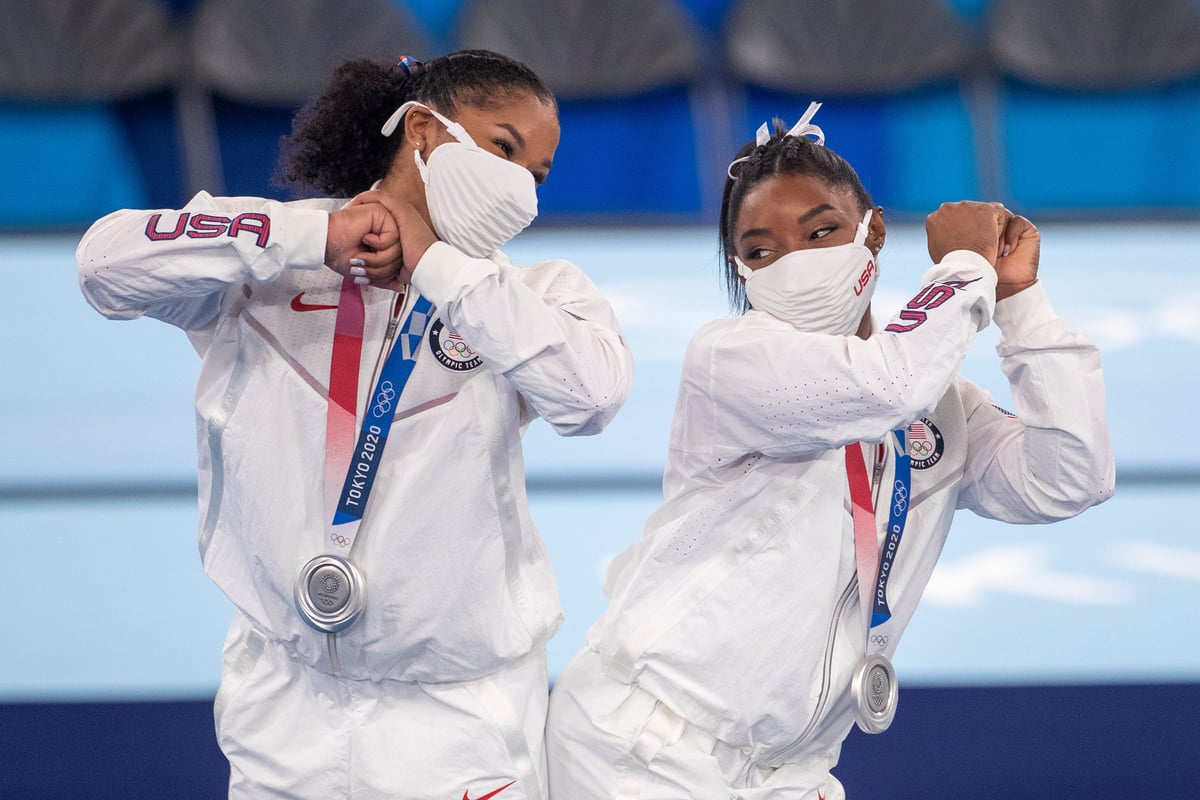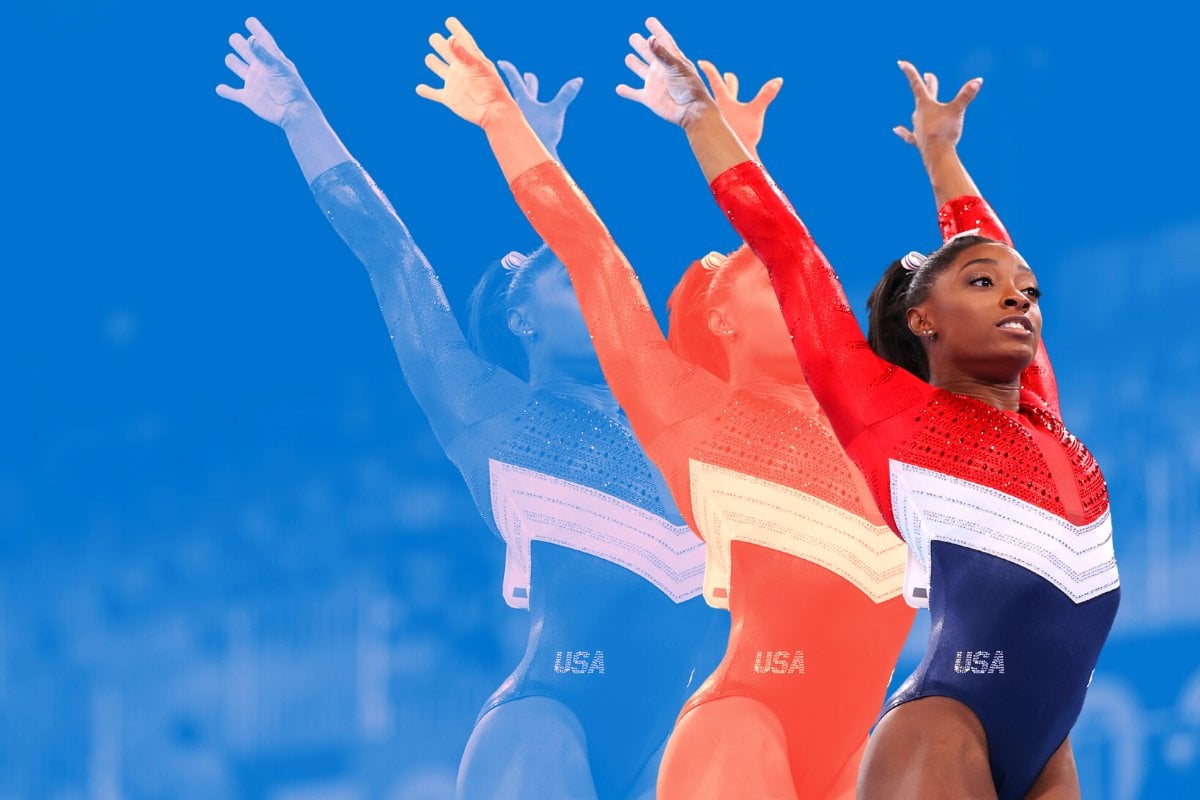
All eyes are always on Simone Biles.
The 24-year-old is considered the greatest gymnast of all time. The golden girl of Team USA. A four-time Olympic champion. A woman who has defied all odds and performed feats that no one else ever has.
So as she stepped up to the vault during Tuesday's Olympic women's gymnastics team final, the 1000+ media, athletes and officials in Tokyo's Ariake Gymnastics Centre watched in anticipation.
It didn't go as anyone had hoped.
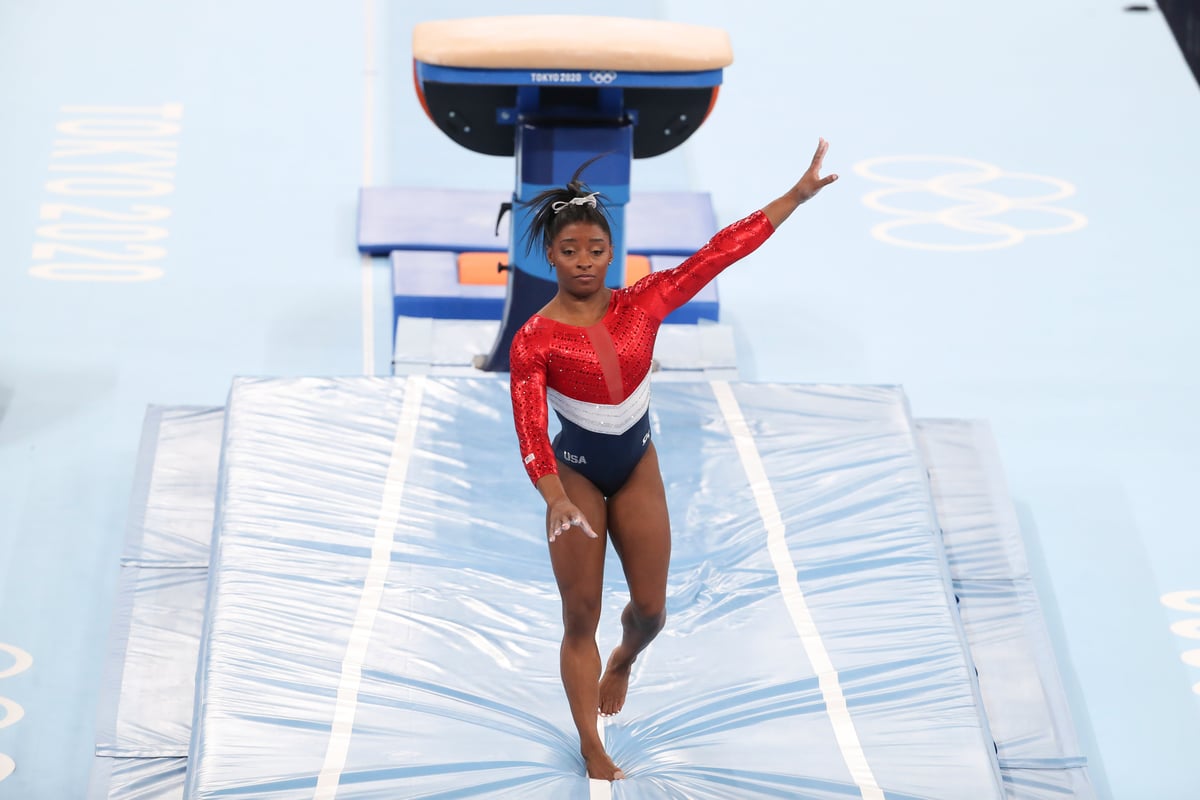 Image: Getty.
Image: Getty.

